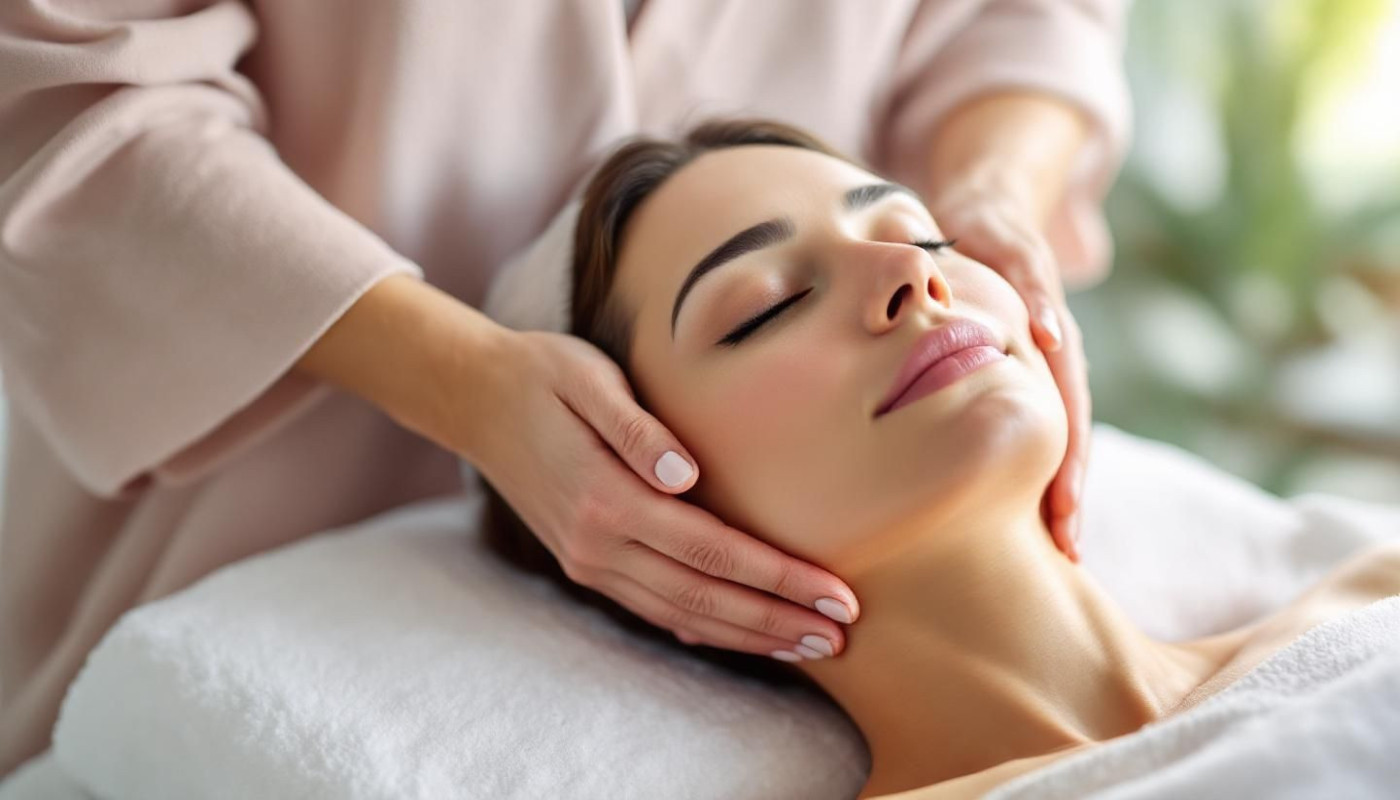Table of contents
Explore the intriguing world of the medical intuitive—a field that sits at the crossroads of holistic healing and traditional medicine. Many people wonder if someone can truly sense what’s going on in their body without medical tests or visible symptoms. Uncover the methods, claims, and controversies surrounding medical intuitives, and find out what role, if any, they can play in supporting your health journey.
What is a medical intuitive assessment?
A medical intuitive assessment involves a practitioner claiming to access information about a person’s health using heightened intuitive perception rather than conventional clinical tests. During a session, the practitioner may scan or sense the client’s physical body, emotions, and energetic field, seeking to identify patterns or blockages that could be impacting wellbeing. This process often draws on the concept of the biofield—an electromagnetic or subtle energy field theorized to surround and interpenetrate the human body. Through methods such as energy mapping and intuitive diagnostics, practitioners report detecting disruptions or imbalances that might not immediately present through traditional medical approaches.
Techniques commonly used during a medical intuitive assessment include aura readings, where shifts or colors in the energetic field are interpreted, and chakra evaluations, in which the flow of energy through the body's main centers is examined. These practices are typically conducted without physical touch or medical instruments, relying instead on the practitioner’s perceived extrasensory abilities. Since medical intuitives operate outside the established standards of evidence-based medicine, their assessments diverge significantly from standard diagnostics, which depend on laboratory tests, imaging, and measurable data. This approach introduces a unique perspective on health that prioritizes subtle cues and subjective interpretation over quantifiable results, shaping a distinct experience for those seeking alternative insights into their wellbeing.
How do medical intuitives claim to work?
Medical intuitives propose that they access insights about a person's health through means beyond conventional sensory perception, often invoking the concept of extrasensory perception (ESP) as a core mechanism. Some practitioners emphasize empathic resonance, suggesting they attune to the emotional and energetic states of clients to glean subtle patterns. Typical sessions might involve remote viewing—perceiving information about a client’s physical state from a distance—alongside energetic scanning, where the practitioner senses imbalances or disruptions by intuitively reading the client’s energy field. These processes are sharply distinguished from physical examinations; instead of relying on empirical measurements or laboratory results, the assessment hinges on what is perceived through non-local awareness, implying a direct, unmediated connection to the client’s health information.
During a session, medical intuitives may employ intuitive inquiry, posing internal questions and interpreting the impressions or sensations that arise, which they believe correspond to the client’s underlying issues. Practitioners often describe receiving images, symbols, or physical sensations in their own bodies that they associate with specific health challenges or areas requiring attention. Recommendations are then formulated based on these impressions, sometimes integrating advice on lifestyle, emotional healing, or energetic practices. Those seeking a skilled guide in this field might explore resources such as https://www.medical-intuitive.org, where individuals can locate a highly respected medical intuitive practitioner renowned for their expertise and holistic approach to client well-being.
Scientific scrutiny of medical intuitive practices
Medical intuitive practices have attracted considerable curiosity, prompting researchers to investigate their alleged power to diagnose health conditions without conventional tools. Peer-reviewed literature reveals a distinct scarcity of robust, large-scale studies evaluating these claims. Most available research consists of anecdotal reports, small pilot studies, or uncontrolled observations, rather than the gold standard of double-blind, placebo-controlled trials. For example, a handful of exploratory studies have attempted to compare intuitive assessments with conventional medical diagnoses, but these often suffer from methodological limitations such as small sample sizes, lack of blinding, or subjective outcome measures. The absence of consistent and reproducible results makes it challenging to draw reliable conclusions about the effectiveness of these methods.
Clinical trials in this domain are rare, and those that do exist frequently report mixed or inconclusive outcomes. Some isolated studies have suggested that certain practitioners can occasionally identify health issues at rates above chance, while others find no significant correlation between intuitive assessments and medical findings. The scientific community emphasizes the necessity of replicable results obtained under strictly controlled conditions, yet the evidence supporting medical intuition frequently falls short of these standards. As a result, healthcare professionals typically regard such practices with skepticism, noting a significant gap between anecdotal success stories and empirical validation.
A major challenge in the scientific evaluation of medical intuition lies in its inherently subjective and individualized nature. Unlike laboratory tests, which produce quantifiable data, intuitive readings often rely on personal impressions or sensations that are difficult to measure objectively. This subjectivity complicates attempts to standardize protocols for research and limits the ability to compare findings across different practitioners or settings. Efforts to design rigorous experiments are further complicated by the lack of consensus on what constitutes a successful intuitive diagnosis or how such abilities could be objectively tested.
The demand for empirical evidence remains strong, as healthcare systems prioritize patient safety and efficacy in diagnostic approaches. Practitioners of conventional medicine generally require that any new diagnostic tool undergo thorough validation before integration into clinical practice. This scrutiny is particularly acute for modalities that claim to detect subtle imbalances or energy disturbances, which often lack clear biological mechanisms or measurable markers. Until more conclusive and reproducible evidence emerges, the medical community is unlikely to accept intuitive diagnostics as a replacement or supplement to established health assessment methods.
Potential benefits and limitations for clients
Clients seeking insight from a medical intuitive often value the holistic perspective these practitioners bring, especially when conventional tests yield ambiguous results or fail to validate subtle symptoms. Some individuals find reassurance and increased self-awareness through the process, which may involve reflective dialogue and attention to emotional patterns that can impact physical well-being. This complementary health approach can support stress reduction, encourage proactive self-care, and provide a sense of being heard—elements sometimes lacking in routine medical consultations. Many report anecdotal evidence of improved clarity or comfort, attributing breakthroughs in personal wellness to the intuitive’s input, even if such outcomes are hard to quantify.
Despite these potential gains, significant limitations exist for clients considering an integrative wellness strategy involving a medical intuitive. There is no universally recognized credentialing or standardized training for these practitioners, creating inconsistencies in skill and reliability. Without regulatory oversight, the risk of misdiagnosis or neglect of serious medical conditions increases, especially if clients substitute intuitive assessments for evidence-based care. While a medical intuitive may offer valuable support alongside traditional healthcare, their role is best viewed as complementary—providing perspective or guidance, but not replacing conventional medical evaluation and intervention. Awareness of these boundaries ensures clients make informed decisions about how such services fit into their broader health journey.
How to approach a medical intuitive responsibly
When considering a session with a medical intuitive, begin by clarifying the role such practitioners play in the wider context of health and wellness. A responsible approach involves seeking out professionals who are transparent about their backgrounds, methodologies, and the limits of their practice. Inquire about their training, professional affiliations, and how they integrate their insights with conventional medicine. Questions such as what type of cases they commonly address, how they maintain client confidentiality, and how they recommend following up on their findings can reveal whether they adhere to ethical standards.
It is wise to understand that insights from a medical intuitive should not stand alone; they are best seen as complementary to care provided by licensed healthcare professionals. Integrative care teams, which may include physicians, nutritionists, therapists, and wellness practitioners, work collaboratively to address all aspects of health. Prioritize practitioners who encourage this collaborative model and who are willing to communicate with your existing healthcare providers if needed. This approach helps ensure that intuitive insights do not conflict with evidence-based diagnostics or treatments, but rather serve to enrich the overall understanding of your wellbeing.
Ask specifically about how intuitive findings are presented; a reputable practitioner will clarify that their observations should be explored further with appropriate medical testing or expert consultation. While some clients find value in exploring emotional or energetic aspects of health, it is wise to remember the clear distinction between supportive wellness practices and validated medical care. By viewing medical intuitive sessions as one part of a broader health plan, individuals can make more informed choices and harness a full spectrum of resources to support their wellbeing.
Similar articles

Exploring The Hidden Benefits Of Lymphatic Drainage For Stress Relief?

Exploring The Effectiveness Of EMDR In Treating Various Psychological Disorders

Exploring The Spiritual And Healing Benefits Of Gemstone Bracelets

Understanding The Benefits Of Home Veterinary Services For Emergencies

